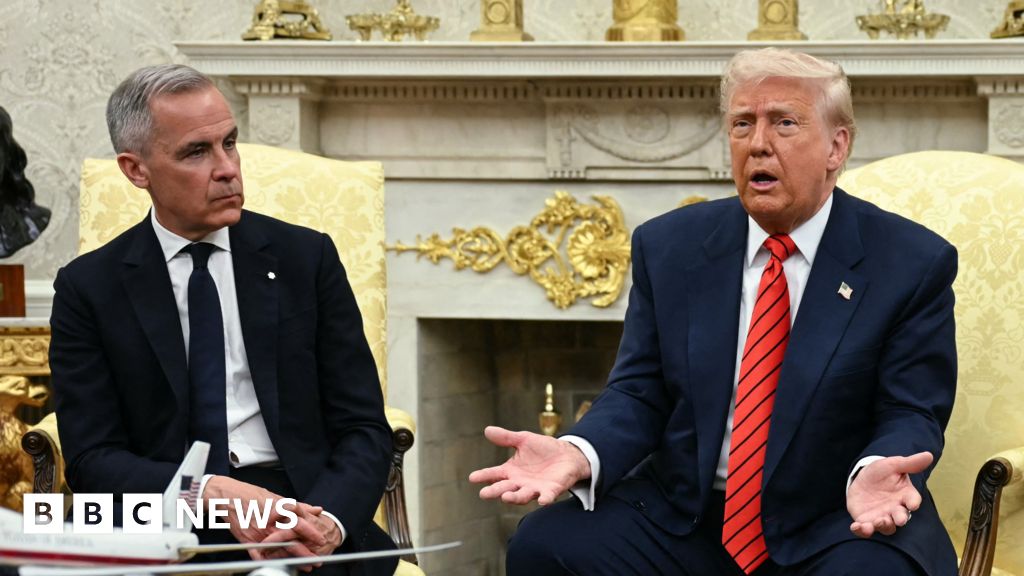Canada Rescinds Digital Services Tax Amid U.S. Pressure
The landscape of international trade often shifts under the weight of political pressure, and the recent decision by Canadian Prime Minister Mark Carney to rescind a proposed digital services tax (DST) on major U.S. technology firms exemplifies this dynamic. Following a conversation with President Donald Trump, Carney confirmed the withdrawal of the tax, underlining the ongoing tensions between the two neighboring countries.
White House Reaction and Claims of Pressure
White House Press Secretary Karoline Leavitt was quick to respond to the announcement, characterizing Carney’s move as a capitulation to U.S. pressure. "Canada made a mistake in trying to levy the tax," she stated, insinuating that the Canadian government acted rashly in the face of a strong response from the Trump administration. The White House framed this as a significant win for American tech companies, arguing that a good bilateral relationship was essential for all nations, particularly those with economies intertwined by trade agreements.
The Controversial Digital Services Tax
Originally introduced in 2020, Canada’s digital services tax aimed at addressing perceived inequities where tech giants—like Amazon, Meta, Google, and Apple—were generating substantial revenues in Canada without paying a proportionate amount of taxes. The tax proposed a 3% levy on revenues exceeding C$20 million (approx. £15 million), impacting companies that had often sidestepped conventional taxable income due to their corporate structures and operating methods.
The Fallout from Trade Tensions
The backdrop to this tax controversy includes ongoing trade disputes between the U.S. and Canada that have intensified since Trump regained office. Trump had labeled Canada’s attempt to impose the DST a "blatant attack," prompting him to halt trade deal negotiations and threaten to raise tariffs on Canadian goods. This retaliation underscored the complicated and often combative nature of U.S.-Canada trade relations.
Canada’s Shift in Strategy
Following the pressure from the White House, Canada announced it would suspend collection of the tax payments due on the announced effective date. Finance Minister François-Philippe Champagne, while justifying the initial intention behind the tax, noted, "Canada’s preference has always been a multilateral agreement related to digital services taxation." This statement highlights Canada’s desire for a cooperative approach to managing taxation on global tech giants, reflecting a broader international move towards reforming how these firms are taxed.
Political Reactions from Canada
The decision to rescind the DST has drawn sharp criticism from Canadian politicians. Pierre Poilievre, leader of the opposition Conservative Party, lambasted the prime minister for backtracking at the "11th hour." In a pointed social media post, he referenced Carney’s earlier commitment to defend Canadian interests, criticizing the prime minister for not standing firm in negotiations with the U.S. Poilievre opportunistically called for the Prime Minister to leverage the situation by insisting the U.S. rescind softwood lumber tariffs in return for dropping the DST.
Global Context of Tech Taxation
The issues surrounding the Canadian digital services tax are not unique, as countries around the globe are grappling with how to tax large multinational corporations effectively. Many nations, including the United Kingdom, are re-examining their tax frameworks to ensure that tech giants contribute fairly to the economies in which they operate. The Canadian government had expected that its DST would generate over C$5.9 billion over five years, an estimate that faced scrutiny as the tax was positioned to impact revenues retroactively.
Economic Implications
Analysts projected that the tax could cost U.S. technology companies over C$2 billion in its first year alone, sending ripples through the tech sector. The immediate economic implications of these shifting tax policies not only affect corporate bottom lines but also the financial dynamics of bilateral trade and the broader global economy.
The recent developments surrounding Canada’s digital services tax provide a clear lens through which to view the complexities of international trade, the power of diplomatic negotiations, and the evolving legislative landscape regarding technology taxation. The relationship between Canada and the U.S. continues to be pivotal, and stakeholders on both sides will be watching closely as these discussions evolve.


